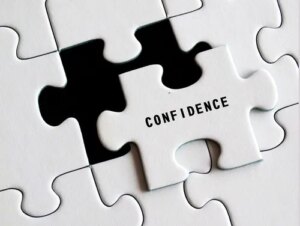Understanding Consumer Confidence in Today’s Economic Climate

In the ever-changing landscape of global trade, one topic continues to dominate discussions: tariffs. With recent fluctuations causing confusion—“tariffs are on, tariffs are off, tariffs are delayed”—it’s no wonder Americans are feeling uneasy. In a recent survey conducted by the University of Michigan, consumer confidence has taken a nosedive, with significant ramifications for our economy.
A Decline in Consumer Sentiment
The March sentiment survey highlighted a staggering 11% decrease in consumer confidence, bringing the index down to 57.9. This marks the third consecutive monthly decline, hitting the lowest point since the unprecedented inflation levels of 2022. More than just a statistic, this decline indicates a pervasive feeling of uncertainty across demographics—spanning age groups, educational backgrounds, income levels, and even political affiliations.
Joanne Hsu, the director of the survey, stated, "Many consumers cited the high level of uncertainty around policy and other economic factors; frequent gyrations in economic policies make it very difficult for consumers to plan for the future, regardless of one’s policy preferences." This uncertainty is not just affecting how people feel; it’s impacting their spending habits as well.
Shifting Spending Patterns
As confidence wanes, so too does consumer spending. For the first time in two years, spending decreased in January 2025. Americans find themselves navigating a landscape riddled with uncertainty regarding both policies and the current cost of living. For many, the financial pinch is becoming painfully evident.
We currently find ourselves amid a period of stagflation, where the prices of goods and services rise, but purchasing power diminishes. An ironic yet crucial aspect of this phase is that some individuals conflate rising prices with inflation, failing to grasp the simultaneous deflationary forces at play. This misunderstanding can lead to confusion about why consumers are spending more while purchasing less—it’s all about the difference between prices and disposable income.
Tariffs and Their Ripple Effects
The anticipation of higher prices due to tariffs has a spiraling effect on confidence levels. When consumers expect inflation, their behavior shifts. Confidence deteriorates, leading to a self-fulfilling prophecy—investments slow down, businesses hesitate, and economic growth stagnates. In such turbulent times, confidence becomes the backbone of economic stability.
Unique Insights from the Extreme Investor Network
At Extreme Investor Network, we understand that confidence is more than just a number; it’s the pulse of the economy. It affects everything from spending habits to investment strategies. As a community dedicated to navigating the complexities of economic conditions, we offer unparalleled insights, resources, and analysis to help mitigate uncertainty.
We encourage our readers not to overlook the power of informed decision-making during challenging times. Thus, we provide tools, data insights, and expert opinions to empower our community members to understand these shifts and adapt their strategies accordingly.
Takeaway: The economic environment continues to shift, shaped heavily by consumer confidence and external factors like tariffs. Leaving uncertainty unaddressed isn’t just an option; informed decisions are essential for thriving amidst these fluctuations.
Join us at Extreme Investor Network, where we empower you to take control of your economic destiny with cutting-edge information and strategies that matter. Stay informed, stay confident, and together, let’s navigate the path toward financial success in uncertain times!

